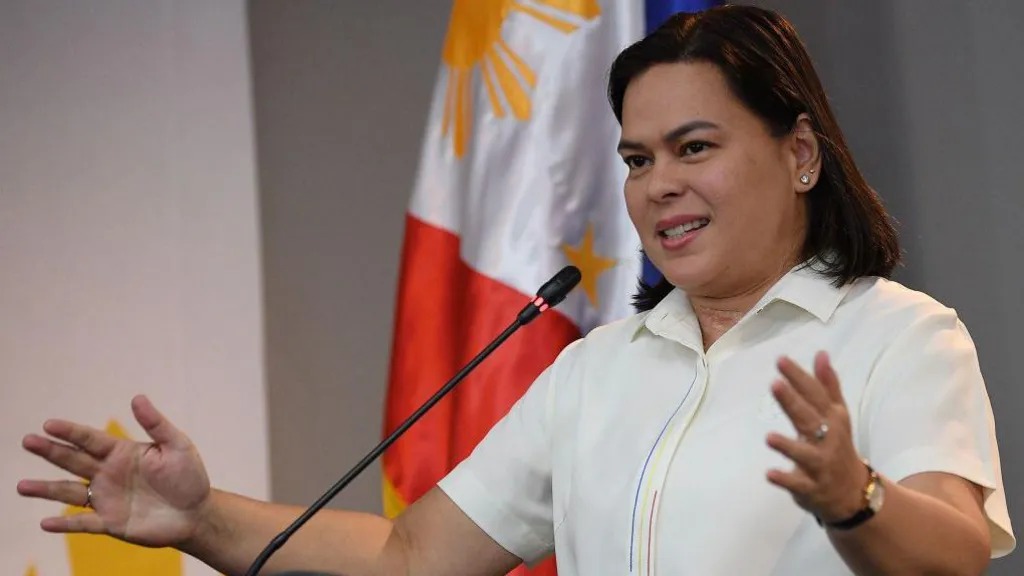
Historic Philippine Vice-President Impeachment Vote
The impeachment bill represents a major shift in Filipino politics. Both Sara Duterte and President Ferdinand Marcos Jr come from two of the country’s most powerful political families. Once running together as part of the “UniTeam” alliance in the 2022 elections, the two leaders have since split over ideological and political differences, including budget allocations and foreign policy directions.
The impeachment vote follows rising scrutiny of Duterte’s confidential funds, which were exempt from state audits. Lawmakers allied with President Marcos have questioned her transparency, beginning a political battle that has worsened over the past year.
While the impeachment process moves to the Senate, Duterte’s political ambitions hang in the balance. If convicted, she will be permanently barred from holding any public office, ending her chances of succeeding Marcos as president in 2028.
The Marcos-Duterte Feud and Its Role in Impeachment
The feud between President Marcos Jr and Vice-President Sara Duterte has become one of the most defining conflicts in Philippine politics. While the two leaders appeared united during the 2022 elections, cracks emerged early, particularly when Duterte was assigned the education portfolio instead of the defense ministry.
Over the last year, their differing political stances have deepened the divide. Marcos has pivoted the Philippines back toward the US, reversing his predecessor Rodrigo Duterte’s pro-China stance. He has also promised to pursue a less violent approach to handling drug crimes, in contrast to Rodrigo Duterte’s controversial “war on drugs.”
By contrast, Sara Duterte has focused on consolidating her regional influence, while frequently clashing with Marcos’s allies in parliament. The feud took another dramatic turn when Duterte, during a press conference, was accused of suggesting Marcos should “be killed” if it came to an assassination plot. She later denied this, claiming that her remarks were taken out of context.
Impeachment Trial Could Set a Historic Precedent
If Sara Duterte is convicted in the Senate, the Philippine Vice-President impeachment will mark the first successful removal of a vice-president in the nation’s history. This trial echoes past politically charged impeachment proceedings in the Philippines. For example:
- Joseph Estrada (2000) : The former president faced impeachment for corruption, but his trial ended prematurely when public protests drove him from power.
- Renato Corona (2012) : The Supreme Court chief justice was impeached and convicted for corruption, marking the only impeachment trial to reach a verdict.
Like its predecessors, Duterte’s impeachment trial is expected to be divisive and drawn out. Some analysts believe the move is part of Marcos’s strategy to eliminate rivals and solidify his allies’ control in parliament ahead of the 2024 midterm elections.
What’s Next for Philippines Politics?
This impeachment comes at a critical time for the Philippines, with midterm elections in May expected to act as a referendum on both Duterte and Marcos. For Duterte, her political career and aspirations for the presidency are under threat. If the Senate rules against her, she will join a short list of Filipino leaders who faced impeachment and lost.
Meanwhile, President Marcos has remained silent on the impeachment process. In a prior remark, he criticized the move, calling it a “waste of time” for lawmakers. However, critics argue that his administration is leveraging the impeachment as a tool to weaken dissent within the government.
As the Philippine Senate sets a date for Duterte’s trial, all eyes remain on what could be a landmark political event. Will this impeachment trial deliver justice or deepen the country’s political divide?
External Link :
Learn more about Philippine political developments on BBC
Internal Link :
Explore news on Southeast Asian political dynamics





